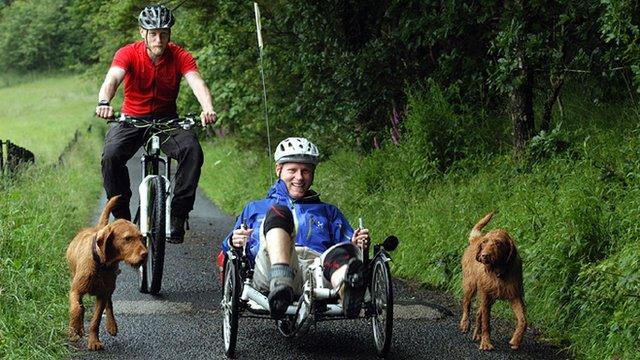Newcastle cycle barriers create no-go area for disabled man
- Published
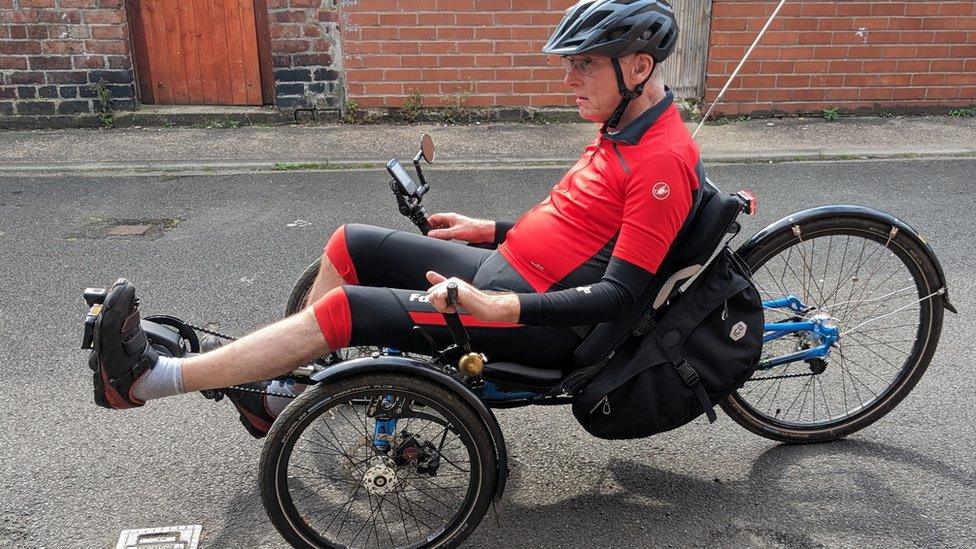
Alastair Fulcher said his recumbent bike can not negotiate barriers on cycle routes
A disabled cyclist says barriers installed to prevent illegal use of motorbikes on a National Cycle Route (NCR) has created a no-go area for him.
Alastair Fulcher uses a recumbent tricycle bike which is too long to get through metal barriers, barring his access to the NCR 72 at Pottery Bank.
He has started legal action against Newcastle City Council challenging the lawfulness of the barriers.
The authority said it had received a complaint and is reviewing it.
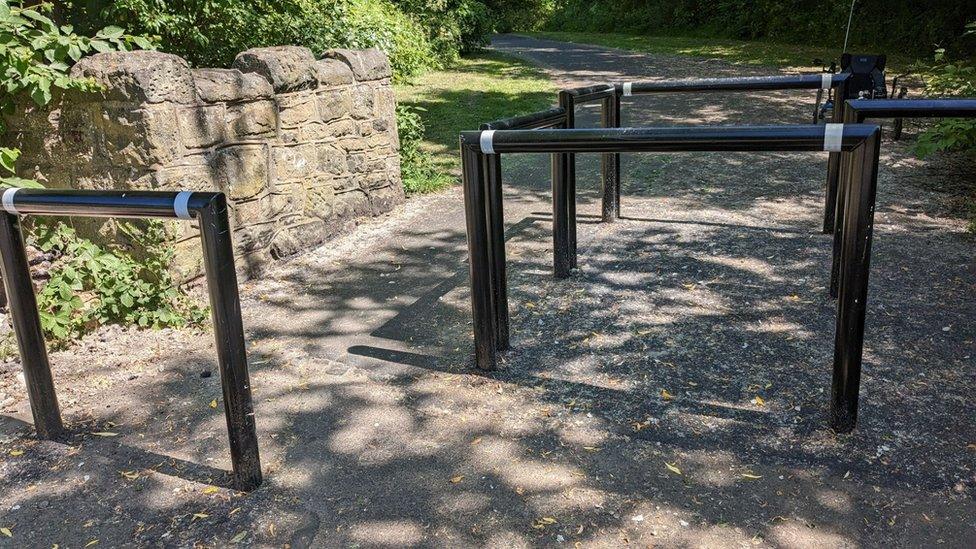
The barriers at Pottery Bank restrict access for larger vehicles
The 61-year-old from North Tyneside was diagnosed with Parkinson's disease in 2018 and recently began to feel unsteady on his solo bicycle.
He bought an HD26 recumbent tricycle last August, but now finds himself excluded from the key route out of Newcastle because he can not manoeuvre the bike through barriers at Walker.
Mr Fulcher said: "It basically means going west on a busy day is a no-go.
"There is an alternative route through a housing estate but it's not easy; it means using the road and it's about 100m uphill."
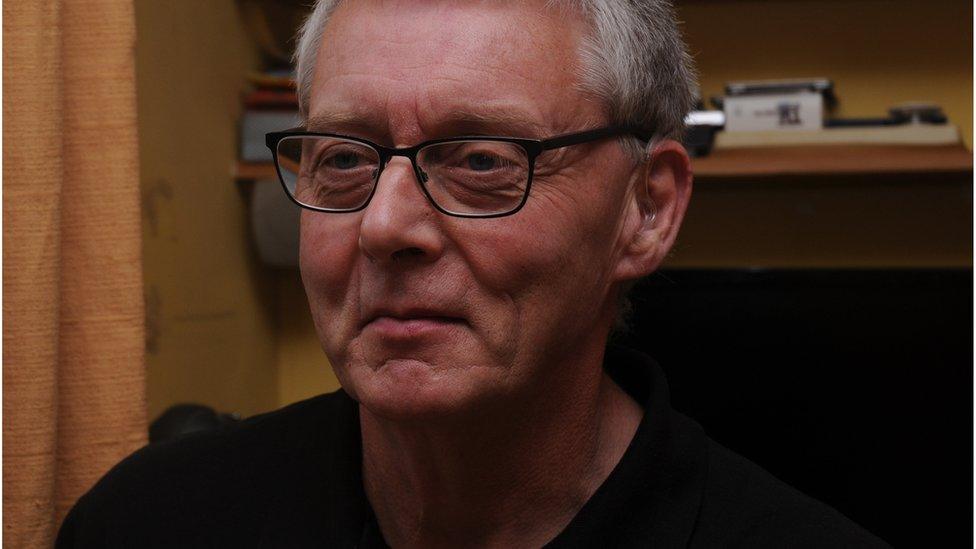
Mr Fulcher has sent a letter to Newcastle City Council challenging the lawfulness of the barriers
He said he contacted the council about the barrier in November 2022, but in May this year the authority put another barrier in place, opposite the original one, which was again of a design barring recumbent bikes.
He claims the installation of the barriers puts Newcastle City Council in breach of the European Convention on Human Rights and Human Rights Act 1998, the Equality Act 2010 and also of its own planning guidance.
The Department for Transport plan for cycling, external states that routes:
Must be accessible to recumbents, trikes, handcycles and other cycles used by disabled cyclists.
Access control measures such as chicane barriers and dismount signs should not be used where they reduce usability and may exclude people riding nonstandard cycles and cargo bikes.
A Newcastle City Council spokesperson said: "We are aware of a complaint from a resident with regards to the cycle path on Pottery Bank. This is currently being reviewed, therefore we are unable to comment further at this time."
Urban Green, which looks after Newcastle's parks and green spaces, also confirmed it had received a complaint regarding the barriers on a section of the National Cycle Network that runs through Walker Riverside Park.
It said it was "in the process of reviewing the complaint so we're able to provide a detailed response".
Mr Fulcher's solicitor Ryan Bradshaw said: "It is always disappointing to come across infrastructure that is inaccessible to disabled people.
"The fact that these barriers have been installed on a National Cycle Route compounds the issue.
"All cycling routes should be inclusive and accessible by default, disabled people should not have to threaten Court action in order to enjoy the types of leisure activities the rest of us can take for granted"
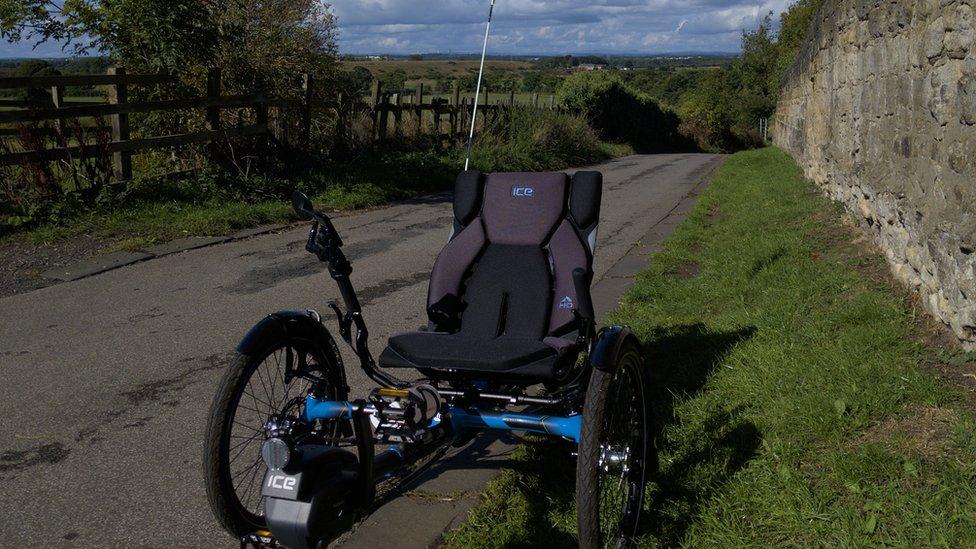
Mr Fulcher's recumbent bike allows him to exercise on quiet routes near his home
Mr Fulcher added: "It makes me feel like I'm the lowest form.
"We've got the local authority believing this conforms with guidelines and that's why I've started legal action, but it shouldn't be like this.
"The location of the barriers completely denies access to me to all of the network of cycle tracks west of this point.
"On a bicycle, you can ride all the way to Carlisle on mostly quiet cycle paths, for me, that's not possible on my recumbent."
Wheels for Wellbeing, which is supporting Mr Fulcher in his legal challenge, said it was finding "time and time-again" that disabled people are being denied access to spaces other people can get to freely.
A spokesperson for the disabled peoples' cycling organisation said: "Barriers on cycle routes are preventing disabled people from making local journeys using all sorts of mobility aids, and restricting access to exercise, recreation and natural spaces, which are all so important for physical and mental health.
"If there really are problems with abuse of paths, it is a policing matter. Authorities need to make it easier to report problems to the police, not discriminate against disabled people with inaccessible barriers".

Follow BBC North East & Cumbria on Twitter, external, Facebook, external and Instagram, external. Send your story ideas to northeastandcumbria@bbc.co.uk, external.
- Published20 March 2022

- Published12 January 2022
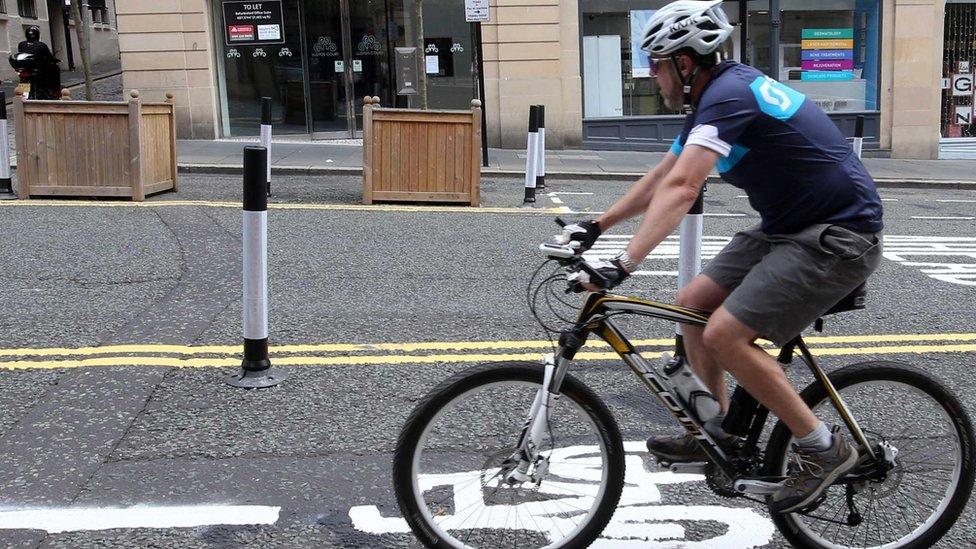
- Published3 June 2021
- Published5 October 2012
